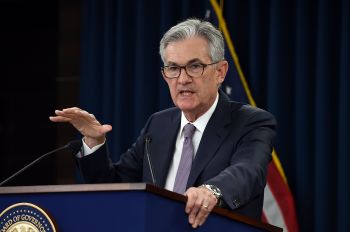A primer on the financial crisis
TEXT OF INTERVIEW
Scott Jagow: I’ve been getting a lot of e-mails about this financial crisis, especially from people trying to understand exactly what’s going on in the credit markets. This morning, we’re going to do a little primer because it is difficult to understand. We’re joined by consultant Peter Cohan. Peter, first question is why do banks need to lend to each other? Don’t they have money already?
Peter Cohan: Oh, they do have a lot of money already, but the complicated thing about it is they usually use very short-term financing — that is money that they borrow for one day, and at the end of the day they get a new loan and just roll it over. That’s the way it normally works. And the reason that banks do that is because it’s among the lowest-cost ways that you can get money.
Jagow: But it’s not cheap right now, and that’s exactly the issue here — the rate that the banks charge each other has gone up so much just in the last few weeks.
Cohan: Ah Yes, and what it basically boils down to is that banks don’t want to lend to each other. They saw what happened when they lent to Bear Stearns, when they lent to Lehman Brothers. And what’s happening is instead of banks lending to each other, the Federal Reserve is stepping in and they’re doing all the lending, because they are basically the lender of last resort, and the banks aren’t lending to each other so all the banks are going to the Fed.
Jagow: OK, but what is happening to that money?
Cohan: The banks are hoarding the money, because they don’t have enough capital. This is the fundamental cause of all this distress. You know, the Fed has been ordering and the Treasury’s been ordering them to go out and raise more capital, and they tried earlier in the year to get the money from the sovereign wealth funds over in China and the Middle East. And they made some investments, lost their money. So they’re basically stuck, they can’t get capital from anywhere else. So here they are, going to the Fed, borrowing the money and hoarding it, and just hope that it keeps them from being wiped out.
Jagow: You could probably imagine how a lot of people feel about this is they made their bed, and now they have to lay in it.
Cohan: Absolutely, and it would be great if they had been responsible enough to have enough protection for what might happen if things went wrong. But unfortunately, by borrowing more and more money, they have put the entire global system at risk. So unfortunately, we have a situation where we have private profits and socialized loses.
Jagow: How do we know that this threat to our economy is not being oversold, that it’s not being exaggerated?
Cohan: We don’t, and I think we have reason to be suspicious. Because of what happened back in early 2003, when we were sort of pushed into a war in Iraq. And frankly, there’s a lot of people in Congress who don’t understand this either, and I think most Americans are hungry for more information, so they really know what they’re talking about instead of all this fear mongering.
Jagow: Well Peter, this was a very good explainer and I really appreciate your time. Thank you so much.
Cohan: Thank you, Scott.
There’s a lot happening in the world. Through it all, Marketplace is here for you.
You rely on Marketplace to break down the world’s events and tell you how it affects you in a fact-based, approachable way. We rely on your financial support to keep making that possible.
Your donation today powers the independent journalism that you rely on. For just $5/month, you can help sustain Marketplace so we can keep reporting on the things that matter to you.


















